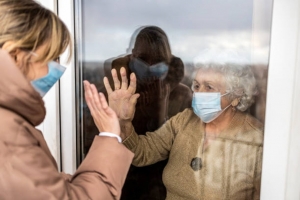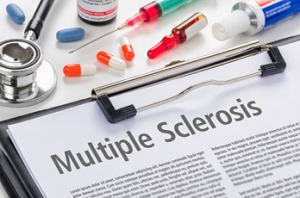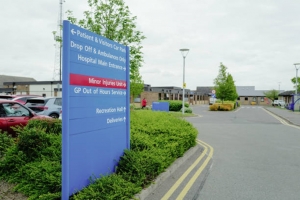New Covid Treatment System Causes Delays for High-Risk Patients
Responsibility for Covid treatment prescriptions in England has shifted to 42 integrated care boards (ICBs). This has led to difficulties for patients, especially those at higher risk. Previously, “high risk” patients testing positive for Covid were contacted directly by local Covid Medicines Delivery Units (CMDUs). Now, many face a "postcode lottery" to access treatments like antivirals.
Reports indicate patients have struggled to obtain medications within the necessary five days, often making multiple calls while seriously ill and needing to argue for their eligibility. Charities like the British Liver Trust and Kidney Care UK have received numerous complaints about accessing treatments. Patients with advanced liver disease and those with compromised immune systems are particularly vulnerable.
According to Vanessa Hebditch from the British Liver Trust, patients have expressed frustration and anxiety over these delays, highlighting the critical need for timely treatment. Fiona Loud from Kidney Care UK noted difficulties in accessing lateral flow tests and Covid treatments, with a lack of recent government communication forcing charities to produce their own guidance for patients.
Experts warn that decentralisation has created health inequalities, particularly affecting those from poorer backgrounds or with limited English skills. Professor Azeem Majeed of Imperial College London stated that this new system requires patients to navigate complex procedures to access treatment, increasing health disparities. The reduced priority of Covid for the NHS and dismantling of pandemic infrastructure has exacerbated these issues.
NHS Introduces Time-Saving MS Injection for Thousands in the UK
Thousands of people with Multiple Sclerosis (MS) in England, Wales, and Northern Ireland will benefit from a new 10-minute injection to slow disease progression, according to NHS England. The medication, Ocrelizumab, traditionally administered via a four-hour hospital infusion, will now be available as a quick subcutaneous injection. This change is expected to save time for both patients and doctors.
Ocrelizumab, also known as Ocrevus, is used to treat active relapsing MS and early primary progressive MS. It works by targeting a specific part of the immune system, reducing nerve damage. The new injection method, recently approved by regulators in Great Britain and Europe, will be given twice a year.
MS affects over 150,000 people in the UK, with 135 new cases diagnosed each week. The condition results from the immune system attacking the protective covering of nerves in the brain and spinal cord, leading to symptoms like vision problems, movement difficulties, and serious disability.
Nin Sambhi, a 39-year-old with relapsing MS, expressed enthusiasm for the new injection, noting it would allow her more time with her young family. The MS Society praised the approval, highlighting the increased convenience and treatment options for patients. Ocrelizumab, manufactured by Roche, was first approved in the UK in 2018. Other injectable MS treatments include ofatumumab, which patients can administer at home.
Labour Government Pledges Urgent NHS Reforms and Increased Appointments
Prime Minister Sir Keir Starmer has announced immediate action to address NHS issues following Labour's general election victory. Speaking at a news conference, Starmer highlighted discussions with two NHS trusts to fulfil Labour's promise of 40,000 additional weekly appointments.
New Health Secretary, Wes Streeting, characterised the NHS as "broken," attributing the problem to Conservative leadership failures rather than NHS England's chief executive Amanda Pritchard. Starmer acknowledged the challenges faced by NHS workers, noting his wife’s experience in the service. He emphasised Labour’s commitment to evening and weekend schemes to increase appointments, starting with St Thomas's Hospital in London and a hospital in Leeds.
While expressing a desire to end junior doctors' strikes, Starmer admitted the government couldn’t meet the BMA's demand for a 35% pay rise but has instead promised mature negotiations to resolve issues and improve the NHS's functionality.
Labour's manifesto pledges include an additional two million operations, scans, and appointments annually through expanded weekend services and private sector collaboration. The funding is expected to come from stricter enforcement of non-dom tax rules. Junior doctors, who comprise nearly half of the NHS medical workforce and are mostly BMA members, last went on strike in June. Streeting reiterated that while a 35% pay rise is unfeasible, there is room for pay discussions and better working conditions for junior doctors.
A Landslide Victory as Britain Wakes Up to a Labour Government
Keir Starmer proclaimed the "sunlight of hope" is shining again in Britain following Labour's resounding election win, ending 14 years of Conservative rule. Starmer is set to become prime minister after Rishi Sunak conceded, with Labour expected to secure over 410 seats compared to the Conservatives' 115.
Starmer, speaking at Royal Festival Hall in London, expressed relief and optimism, emphasizing a renewed opportunity for the country. The Conservatives faced their worst election performance, with key figures like Liz Truss, Jacob Rees-Mogg, and Grant Shapps losing their seats. Labour also made significant gains in Scotland and from the SNP, while the Liberal Democrats increased their seats to 70.
Reform UK saw a rise, winning at least four seats, with Nigel Farage becoming an MP. The Greens also won four seats. Notably, former Labour leader Jeremy Corbyn won in Islington North as an independent, and pro-Palestine independents had surprising victories.
Sunak acknowledged the defeat, emphasising the peaceful transfer of power. Labour's triumph is seen as a beacon of hope for progressive movements globally. The party reclaimed significant regions from the Conservatives, marking a major turnaround since Starmer took leadership. Labour is poised to implement substantial changes, with a focus on workers' rights, energy generation, and improved trading relations, while addressing critical issues like the NHS and prison system.
London Hospitals Disrupted by Cyber Attack with Thousands of Appointments and Operations Postponed
Synnovis, an agency managing labs for NHS trusts and GPs in southeast London, suffered a data breach on June 3rd. According to figures outside NHS England, the attack has resulted in 3,396 postponed appointments and 1,255 delayed elective procedures.
Chief executives of two affected trusts have declared the incident as "critical." Data from June 17th to June 23rd shows King's College Hospital NHS Foundation Trust and Guy's and St Thomas' NHS Foundation Trust postponed 1,300 outpatient appointments and 205 elective procedures. Doctors' surgeries in London have also reported ongoing disruptions, with blood testing services significantly reduced.
Julie Lowe, deputy chief executive at King’s College Hospital NHS Foundation Trust, and Dr. Simon Steddon, chief medical officer at Guy’s and St Thomas’ NHS Foundation Trust, issued a joint statement: “We are having to postpone a number of operations and appointments at present, and we would like to apologise again to those patients affected. Staff are continuing to do an excellent job in very challenging circumstances, for which they deserve enormous credit.”
It was reported that the cyber-attack was carried out by criminals who published sensitive patient data in an attempt to extort money from Synnovis. The ongoing disruption highlights the severe impact of cyber threats on healthcare services and the importance of more robust security measures.








